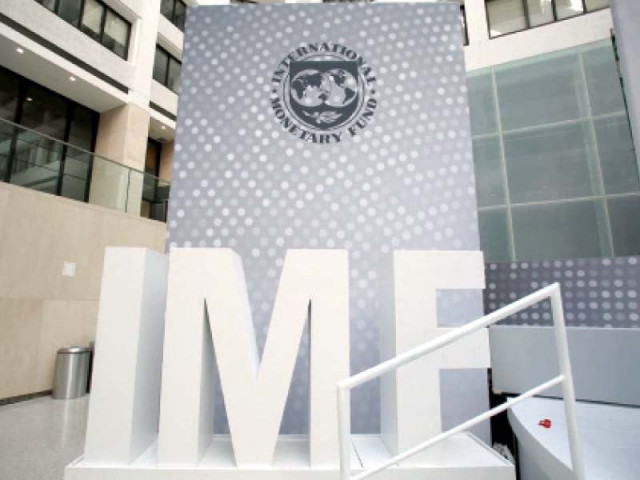IMF programme: choices amongst alternatives
Ad hoc measures such as withholding taxes will worsen output, employment situation

On this day, it seems that we are at a critical juncture in our deal with IMF. We know that our current account and fiscal deficits have reached a point where we can only remain globally connected by remaining under a supervised and strict monetary and fiscal discipline for another 10 to 15 years.
The reason we are required to accept tough conditions being demanded by IMF is our current account issue.
In 2021-22, we had a yawning gap of $30 billion between forex inflows and outflows. It appears that on our own we do not have forex resources to pay for imports, debt repayment and service, foreign travel/ education/ tourism/ medical/ foreign office expenses and money repatriation by MNCs.
The short-term solution is getting into an IMF-monitored programme so that we can get debt payment rescheduling by major lenders and get more loans on soft terms to finance current unavoidable outflows. Though the issue seems related to imports, exports, remittances and repatriation of USD to and from Pakistan, yet it is very closely linked to the domestic economic scenario. If one thinks through the reasons of negative current account balance, it appears that the domestic policy of keeping imports relatively cheaper is the major cause of this illness.
The so-called pegged official exchange rate, energy subsidies, government imports/ purchases of goods with heavy import costs (paper, computers, defence goods, vehicles, phones, electrical appliances, steel products, wires and cables, etc) and everything which has dollar cost are inbuilt in its supply chain.
Add private consumption of imported goods and you will understand the nature of our plight. The solution is pretty obvious which is to suppress import demand in immediate term and increase exports in the medium term. After WTO agreement, countries cannot strictly ban imports for longer time periods and such banning creates other issues as our exports are also heavily dependent on imports and hence such actions are not feasible.
Resultantly, the import compression has to come by reducing the buying power of consumers by cutting their disposable income through taxation. The second part of action relates to optimising government expenditure by compelling it to stop throwing away public money. Hence the equation is simple, ie reduce government expenses and raise more taxes to curb private demand and to make federal government solvent enough to pay for its liabilities without taking too much loans.
So, here we are, talking to the Fund on a daily basis about what sort of government spending needs to stop and what further revenue measures are required to make the federal government solvent again. Press reports indicate that the discussion is focused on reducing federal government expenditure on energy and other non-targeted subsidies, closing/ reducing expenses on loss-making state-owned companies (PIA, Railways, utility stores), privatisation of government entities (steel mills, power plants, DISCOs) and adopting tax measures of another Rs600 billion for next four and a half month.
The government will ultimately be constrained to accept these terms but there are multiple ways of doing such things. There are ways in which these proposed measures can remain aligned to the canons of good/ optimal taxation and there are ways in which we can assure revenues in short run but such actions will ultimately hurt economy in a much adverse manner.
We should remember that current tax system is already light years away from best international practices and is actually prohibiting and stunting national growth. Ad hoc measures such as adding further withholding taxes, ad hoc levies, import and domestic duties will worsen output and employment situation and will fuel further inflation.
My previous experience with IMF tells me that they listen and try to understand our issues but have increasingly become wary of our promises which we have been unable to fulfil in past.
The right approach towards taxation is therefore to abide by theory of optimum taxation which can be described in following six simple principles:
a. Always go for broad-based taxes, ie a progressive income tax, a uniform rate VAT/ GST and a potent urban immovable property tax. b. Income tax should have minimum or no exemption and all sorts of incomes should face equal tax burden regardless of source (capital gains on property, agriculture, etc).
c. VAT should have a uniform rate and should tax the whole value chain (currently import and manufacturing is paying all of it) excluding consumption items for the poor.
d. Import duties on non-essential finished as well as intermediate goods having less than 30% value addition in Pakistan should be heavily taxed but import taxes on raw materials and other intermediate goods and capital machinery should be very low.
e. Withholding taxes should only be levied where the transaction represents income or is a close proxy of income.
f. Increasing tax enforcement is the only way forward for increasing the real revenues. Technology and data is offering wonderful solutions for this problem at an affordable cost. There is no reason why a country with 85 million bank accounts has a tax paying population of only 2 million. A real-time national database is first step in the journey towards better compliance.
The revival of IMF programme is an unpleasant and difficult task but it is also offering an opportunity for putting our house in order for the welfare and integrity of this country.
The writer is Revenue Lead, Revenue Mobilisation, Investment and Trade Programme (ReMIT), ex-member policy FBR and ex-additional secretary, Ministry of Industries and Production
Published in The Express Tribune, February 6th, 2023.
Like Business on Facebook, follow @TribuneBiz on Twitter to stay informed and join in the conversation.



















COMMENTS
Comments are moderated and generally will be posted if they are on-topic and not abusive.
For more information, please see our Comments FAQ